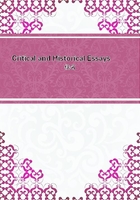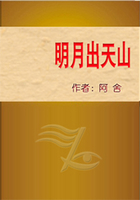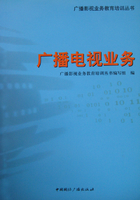NOTE 1.--THE SOCIETY OF FRIENDS
In explanation of this circumstance,I cannot help adding a note not very necessary for the reader,which yet I record with pleasure,from recollection of the kindness which it evinces.In early youth I resided for a considerable time in the vicinity of the beautiful village of Kelso,where my life passed in a very solitary manner.I had few acquaintances,scarce any companions,and books,which were at the time almost essential to my happiness,were difficult to come by.It was then that I was particularly indebted to the liberality and friendship of an old lady of the Society of Friends,eminent for her benevolence and charity.Her deceased husband had been a medical man of eminence,and left her,with other valuable property,a small and well-selected library.This the kind old lady permitted me to rummage at pleasure,and carry home what volumes I chose,on condition that I should take,at the same time,some of the tracts printed for encouraging and extending the doctrines of her own sect.She did not even exact any promise that I would read these performances,being too justly afraid of involving me in a breach of promise,but was merely desirous that I should have the chance of instruction within my reach,in case whim,curiosity,or accident,might induce me to have recourse to it.
NOTE 2.--THE PERSECUTORS
The personages here mentioned are most of them characters of historical fame;but those less known and remembered may be found in the tract entitled,'The Judgment and Justice of God Exemplified,or,a Brief Historical Account of some of the Wicked Lives and Miserable Deaths of some of the most remarkable Apostates and Bloody Persecutors,from the Reformation till after the Revolution.'This constitutes a sort of postscript or appendix to John Howie of Lochgoin's 'Account of the Lives of the most eminent Scots Worthies.'The author has,with considerable ingenuity,reversed his reasoning upon the inference to be drawn from the prosperity or misfortunes which befall individuals in this world,either in the course of their lives or in the hour of death.In the account of the martyrs'sufferings,such inflictions are mentioned only as trials permitted by providence,for the better and brighter display of their faith,and constancy of principle.But when similar afflictions befell the opposite party,they are imputed to the direct vengeance of Heaven upon their impiety.If,indeed,the life of any person obnoxious to the historian's censures happened to have passed in unusual prosperity,the mere fact of its being finally concluded by death,is assumed as an undeniable token of the judgement of Heaven,and,to render the conclusion inevitable,his last scene is generally garnished with some singular circumstances.Thus the Duke of Lauderdale is said,through old age but immense corpulence,to have become so sunk in spirits,'that his heart was not the bigness of a walnut.'
NOTE 3.--LAMENTATION FOR THE DEAD
I have heard in my youth some such wild tale as that placed in the mouth of the blind fiddler,of which,I think,the hero was Sir Robert Grierson of Lagg,the famous persecutor.But the belief was general throughout Scotland that the excessive lamentation over the loss of friends disturbed the repose of the dead,and broke even the rest of the grave.There are several instances of this in tradition,but one struck me particularly,as I heard it from the lips of one who professed receiving it from those of a ghost-seer.This was a Highland lady,named Mrs.C--of B--,who probably believed firmly in the truth of an apparition which seems to have originated in the weakness of her nerves and strength of her imagination.She had been lately left a widow by her husband,with the office of guardian to their only child.The young man added to the difficulties of his charge by an extreme propensity for a military life,which his mother was unwilling to give way to,while she found it impossible to repress it.About this time the Independent Companies,formed for the preservation of the peace of the Highlands,were in the course of being levied;and as a gentleman named Cameron,nearly connected with Mrs.C--,commanded one of those companies,she was at length persuaded to compromise the matter with her son,by permitting him to enter this company in the capacity of a cadet,thus gratifying his love of a military life without the dangers of foreign service,to which no one then thought these troops were at all liable to be exposed,while even their active service at home was not likely to be attended with much danger.She readily obtained a promise from her relative that he would be particular in his attention to her son and therefore concluded she had accommodated matters between her son's wishes and his safety in a way sufficiently attentive to both.She set off to Edinburgh to get what was awanting for his outfit,and shortly afterwards received melancholy news from the Highlands.The Independent Company into which her son was to enter had a skirmish with a party of caterans engaged in some act of spoil,and her friend the captain being wounded,and out of the reach of medical assistance,died in consequence.This news was a thunderbolt to the poor mother,who was at once deprived of her kinsman's advice and assistance,and instructed by his fate of the unexpected danger to which her son's new calling exposed him.
She remained also in great sorrow for her relative,whom she loved with sisterly affection.These conflicting causes of anxiety,together with her uncertainty,whether to continue or change her son's destination,were terminated in the following manner:--The house in which Mrs.C--resided in the old town of Edinburgh,was a flat or story of a land accessible,as was then universal,by a common stair.The family who occupied the story beneath were her acquaintances,and she was in the habit of drinking tea with them every evening.It was accordingly about six o'clock,when,recovering herself from a deep fit of anxious reflection,she was about to leave the parlour in which she sat in order to attend this engagement.The door through which she was to pass opened,as was very common in Edinburgh,into a dark passage.In this passage,and within a yard of her when she opened the door,stood the apparition of her kinsman,the deceased officer,in his full tartans,and wearing his bonnet.Terrified at what she saw,or thought she saw,she closed the door hastily,and,sinking on her knees by a chair,prayed to be delivered from the horrors of the vision.She remained in that posture till her friends below tapped on the door,to intimate that tea was ready.Recalled to herself by the signal,she arose,and,on opening the apartment door,again was confronted by the visionary Highlander,whose bloody brow bore token,on this second appearance,to the death he had died.Unable to endure this repetition of her terrors,Mrs.C--sank on the door in a swoon.Her friends below,startled with the noise,came upstairs,and,alarmed at the situation in which they found her,insisted on her going to bed and taking some medicine,in order to compose what they took for a nervous attack.They had no sooner left her in quiet,than the apparition of the soldier was once more visible in the apartment.
This time she took courage and said,'In the name of God,Donald,why do you haunt one who respected and loved you when living?'
To which he answered readily,in Gaelic,'Cousin,why did you not speak sooner?My rest is disturbed by your unnecessary lamentation--your tears scald me in my shroud.I come to tell you that my untimely death ought to make no difference in your views for your son;God will raise patrons to supply my place and he will live to the fullness of years,and die honoured and at peace.'The lady of course followed her kinsman's advice and as she was accounted a person of strict veracity,we may conclude the first apparition an illusion of the fancy,the final one a lively dream suggested by the other two.
NOTE 4.--PETER PEEBLES
This unfortunate litigant (for a person named Peter Peebles actually flourished)frequented the courts of justice in Scotland about the year 1792,and the sketch of his appearance is given from recollection.The author is of opinion that he himself had at one time the honour to be counsel for Peter Peebles,whose voluminous course of litigation served as a sort of assay-pieces to most young men who were called to the bar.The scene of the consultation is entirely imaginary.
NOTE 5.--JOHN'S COFFEE-HOUSE
This small dark coffee-house,now burnt down,was the resort of such writers and clerks belonging to the Parliament House above thirty years ago as retained the ancient Scottish custom of a meridian,as it was called,or noontide dram of spirits.If their proceedings were watched,they might be seen to turn fidgety about the hour of noon,and exchange looks with each other from their separate desks,till at length some one of formal and dignified presence assumed the honour of leading the band,when away they went,threading the crowd like a string of wild fowl,crossed the square or close,and following each other into the coffee-house,received in turn from the hand of the waiter,the meridian,which was placed ready at the bar.This they did,day by day:and though they did not speak to each other,they seemed to attach a certain degree of sociability to performing the ceremony in company.
NOTE 6.--FISHING RIGHTS
It may be here mentioned,that a violent and popular attack upon what the country people of this district considered as an invasion of their fishing right is by no means an improbable fiction.Shortly after the close of the American war,Sir James Graham of Netherby constructed a dam-dyke,or cauld,across the Esk,at a place where it flowed through his estate,though it has its origin,and the principal part of its course,in Scotland.
The new barrier at Netherby was considered as an encroachment calculated to prevent the salmon from ascending into Scotland,and the right of erecting it being an international question of law betwixt the sister kingdoms,there was no court in either competent to its decision.In this dilemma,the Scots people assembled in numbers by signal of rocket lights,and,rudely armed with fowling-pieces,fish-spears,and such rustic weapons,marched to the banks of the river for the purpose of pulling down the dam-dyke objected to.Sir James Graham armed many of his own people to protect his property,and had some military from Carlisle for the same purpose.A renewal of the Border wars had nearly taken place in the eighteenth century,when prudence and moderation on both sides saved much tumult,and perhaps some bloodshed.The English proprietor consented that a breach should be made in his dam-dyke sufficient for the passage of the fish,and thus removed the Scottish grievance.I believe the river has since that time taken the matter into its own disposal,and entirely swept away the dam-dyke in question.
NOTE 7.--STATE OF SCOTLAND
Scotland,in its half-civilized state,exhibited too many examples of the exertion of arbitrary force and violence,rendered easy by the dominion which lairds exerted over their tenants and chiefs over their clans.The captivity of Lady Grange,in the desolate cliffs of Saint Kilda,is in the recollection of every one.At the supposed date of the novel also a man of the name of Merrilees,a tanner in Leith,absconded from his country to escape his creditors;and after having slain his own mastiff dog,and put a bit of red cloth in its mouth,as if it had died in a contest with soldiers,and involved his own existence in as much mystery as possible,made his escape into Yorkshire.Here he was detected by persons sent in search of him,to whom he gave a portentous account of his having been carried off and concealed in various places.Mr.Merrilees was,in short,a kind of male Elizabeth Canning,but did not trespass on the public credulity quite so long.
NOTE 8.--CONCEALMENTS FOR THEFT AND SMUGGLINGI am sorry to say that the modes of concealment described in the imaginary premises of Mr.Trumbull,are of a kind which have been common on the frontiers of late years.The neighbourhood of two nations having different laws,though united in government,still leads to a multitude of transgressions on the Border,and extreme difficulty in apprehending delinquents.About twenty years since,as far as my recollection serves,there was along the frontier an organized gang of coiners,forgers,smugglers,and other malefactors,whose operations were conducted on a scale not inferior to what is here described.The chief of the party was one Richard Mendham a carpenter,who rose to opulence,although ignorant even of the arts of reading and writing.But he had found a short road to wealth,and had taken singular measures for conducting his operations.Amongst these,he found means to build,in a suburb of Berwick called Spittal,a street of small houses,as if for the investment of property.He himself inhabited one of these;another,a species of public-house,was open to his confederates,who held secret and unsuspected communication with him by crossing the roofs of the intervening houses,and descending by a trap-stair,which admitted them into the alcove of the dining-room of Dick Mendham's private mansion.
A vault,too,beneath Mendham's stable,was accessible in the manner mentioned in the novel.The post of one of the stalls turned round on a bolt being withdrawn,and gave admittance to a subterranean place of concealment for contraband and stolen goods,to a great extent.Richard Mendham,the head of this very formidable conspiracy,which involved malefactors of every kind,was tried and executed at Jedburgh,where the author was present as Sheriff of Selkirkshire.Mendham had previously been tried,but escaped by want of proof and the ingenuity of his counsel.
NOTE 9--CORONATION OF GEORGE III
In excuse of what may be considered as a violent infraction of probability in this chapter,the author is under the necessity of quoting a tradition which many persons may recollect having heard.It was always said,though with very little appearance of truth,that upon the Coronation of the late George III,when the champion of England,Dymock,or his representative,appeared in Westminster Hall,and in the language of chivalry solemnly wagered his body to defend in single combat the right of the young King to the crown of these realms,at the moment when he flung down his gauntlet as the gage of battle,an unknown female stepped from the crowd and lifted the pledge,leaving another gage in room of it,with a paper expressing,that if a fair field of combat should be allowed,a champion of rank and birth would appear with equal arms to dispute the claim of King George to the British kingdoms.The story is probably one of the numerous fictions which were circulated to keep up the spirits of a sinking faction,The incident was,however,possible,if it could be supposed to he attended by any motive adequate to the risk,and might be imagined to occur to a person of Redgauntlet's enthusiastic character.George III,it is said,had a police of his own,whose agency was so efficient,that the sovereign was able to tell his prime minister upon one occasion,to his great surprise,that the Pretender was in London.The prime minister began immediately to talk of measures to be taken,warrants to be procured,messengers and guards to be got in readiness.'Pooh,pooh,'said the good-natured sovereign,since I have found him out,leave me alone to deal with him.'--'And what,'said the minister,'is your Majesty's purpose,in so important a case?'--'To leave the young man to himself,'said George III;'and when he tires he will go back again.'The truth of this story does not depend on that of the lifting of the gauntlet;and while the latter could be but an idle bravado,the former expresses George Ill's goodness of heart and soundness of policy.
NOTE 10.--COLLIER AND SALTER
The persons engaged in these occupations were at this time bondsmen;and in case they left the ground of the farm to which they belonged,and as pertaining to which their services were bought or sold,they were liable to be brought back by a summary process.The existence of this species of slavery being thought irreconcilable with the spirit of liberty,colliers and salters were declared free,and put upon the same footing with other servants,by the Act 15Geo.III chapter 28th.They were so far from desiring or prizing the blessing conferred on them,that they esteemed the interest taken in their freedom to be a mere decree on the part of the proprietors to get rid of what they called head and harigald money,payable to them when a female of their number,by bearing a child,made an addition to the live stock of their master's property.















